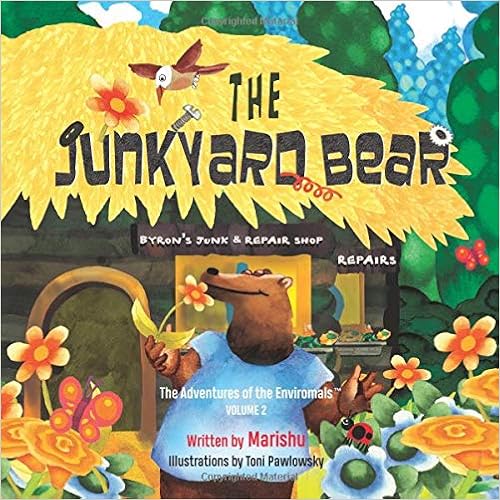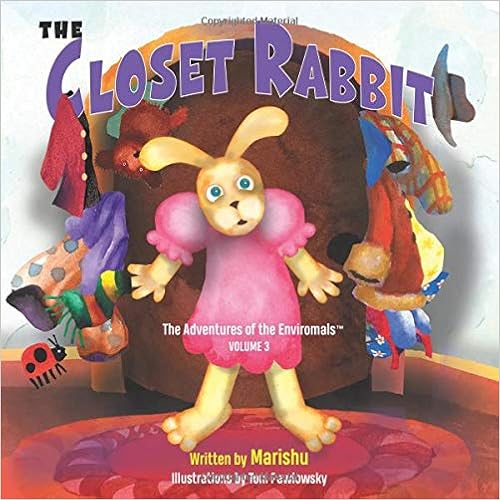Welcome to the Parenting Toolbox!
The Parenting Toolbox is a helpful resource for families and caregivers for children of all ages. Your host Marishu narrates the podcast, where she interviews guests, comments on useful books and articles and shares her wisdom and experience to help communities raise healthy, kind and responsible children.
Her mission in life is to “help children find their voice and heal the planet.”
Smart Phone Parents

We now live in an age of distraction. The main culprit is smart phones when it
come to “Tuned Out” parents. The ability to focus on our parent/child
relationships is under threat due to the amount of time we spend connecting to
the world via devices.
The amount of screen time young children spend is now averaging four hours a
day. I am not saying it’s the phone ‘s fault. I am saying that our ability to pay
undivided attention to our children has changed dramatically over the last 15
years, and that is directly linked to our devices.
When you are spending time with your family put your devices away. Focus on
your kids needs and what they are asking from you. When you have an
opportunity to interact and play with your kids, take it. Put down the smart
phones and become smarter parent. Your kids need uninterrupted attention to
know they are important and loved in their home.
Fed Up Parenting

Fed Up Parenting
Complaining about how we never have anytime for ourselves once we have
children is nothing new. However, lately I have been hearing some parents
discouraging couples who have no children to avoid having a family. The
reasoning for this advice?
Having kids means you will give up on your own needs and wellbeing because
society expects you to be a Super Mom or Dad.
While the pressures of parenting can be overwhelming at times, with proper
support and education you need not neglect yourself because you have become
a parent. Being Fed up simply means that you have not found the right life
balance to achieve success while still caring for a family.
Gathering around you a support system to help get you through the tough times
is vital. There is nothing wrong with having a soup and sandwich for dinner. Or
letting the dishes wait while you go for a walk. Parenting allows for self care if you
make it a priority!
Finding your Childs Strengths

Finding your Childs Strengths.
Infusing your child with confidence starts with understanding what strengths your child possesses. Personal traits such as kindness, creativity and empathy play into their social interactions. By being a good friend that is honest and caring sets the groundwork for further skills and strengths.
Good communication skills are a direct result of personal and social strengths. Imagination and creativity are a great foundation for academic life, as are empathy and kindness for their social life.
By being an encourager, not a discourager to your children, their self confidence will carry them through most of the challenges they will face in their daily lives.
There is a superstar in every child just waiting to be cheered out.
Dr Seuss said it perfectly.
Why fit in when you were born to stand out!
Teaching Kids About Body Image

In this episode, Marishu addresses the sensitive topic – teaching kids about body image.
Do you have a belief about your body Image? That belief is often passed down to our children and it becomes confusing to them as they age. On one hand we shower them with love and praise but constantly criticize our bodies.
When kids are taught the value of inside out beauty, they tend to feel more settled and accepting towards themselves and others. Focus on their choices and habits and not the way they look.
Let them know that magazines and television screens are not a realistic representation of how people really look. Point out the Fake pictures of models that are airbrushed and altered. Have open discussions about the lie that you have to look a certain way to be successful or admired.
Foster a love of exercise and movement. Introduce healthy foods and choices to your kids at a young age to allow a healthy relationship with their bodies. Teach appropriate boundaries for others invading their space and being inappropriate. Most importantly that we only get one body and take good care of it for future use!
Are You A Good Parent?

In this episode, Marishu asks the question. Are you a good parent?She share tips on how to improve your child’s self esteem.
How do we decide what good parenting is? Is it based on the individual child or a standard for how children should behave? Each child does not come with a manual on how to raise them and in the end, it is good old-fashioned common sense that saves the day. By focusing on what is important to your family and child, you can become a parent of great children.
Here are some guidelines:
- Concentrate on your child’s positive behaviour rather than negative.
- Model a healthy respectful relationship with your spouse
- Avoid yelling at your kids
- Do not threaten but rather give consequences
- Teach your child kindness and concern for others
- Allow your kids to learn lessons and stop cleaning up their messes
- Show patience, compassion and empathy for your child.
Children are a blessing and their wisdom is the gift to us parents who need to learn the true meaning of life.
Dealing With School Refusal

In this episode Marishu looks at the issue of kids that refuse to go to school.
All parents deal with their kids not wanting to go to school. Perhaps they were embarrassed by public speaking, or a friendship ended, a teacher was stern, and your child finds it created panic or anxiety. These experiences can be overcome by talking through their feelings and creating solutions. One great tip is to make staying at home boring and as school like as possible.
There is another form of school refusal that can be very serious, resulting in anxiety and depression disorders. If you notice your child is skipping homework, avoiding socialization, not sleeping well, and refusing to go to school. It could be a sign of a more serious problem that needs immediate attention. Creating a support team for your child to address these issues can make a difference by integrating your child back to school. The daily routine of school life can lead to the success of overcoming anxiety or depression.
When To Keep Sick Kids Home

In this episode Marishu looks at the issue of keeping kids at home when they are sick.
The school year gets hit from time to time with outbreaks of colds, flu or pneumonia. It can be difficult to know what to do to prevent your child from getting sick. Good Hygiene is one facet of wellness. Stressing that proper handwashing is a great way to prevent illness. Another important factor is keeping sick children out of school. It is a decision you will have to make based on school guidelines and your own judgement.
Here is a guideline of symptoms to watch for:
– Fever
– Nausea or vomiting.
– Diarrhea
-Lethargy or pain
-Persistent cough
When both parents are working it is often hard to keep kids at home when they are sick. Having a plan in place for daycare is a vital step to ensure your child gets rest and other children do not catch your child’s illness. We all do better when we look out for each other!
Teaching Kids About Racial Bias

In this episode Marishu outlines how parents can address the issue of racial bias.
Racial Bias is a real thing. It is not fake news or fairy tales but a tangible struggle for some that are targeted due to race or religion. Talking to our children about the impact of judging those who are different from us is the starting point. Embracing other cultures, religions and races starts with you. Take your kids to different ethnic restaurants and sample their cuisine. Talk about the history and culture of the food you are eating. Model inclusivity by having friends that are not of your race. Examine your own racial bias and get education about what you fear in other cultures. Go to another place of worship and see what it is all about. Only by facing our fear and differences can we begin to heal our society of ignorance and racism.
Ruby Bridges was quoted as saying; “Racism is a grown-up disease and we should stop using our kids to spread it”.
How to Have a Meaningful Conversation With Your Kids

In this episode Marishu asks, have you ever planned a meaningful conversation with your kids? A purposeful conversation is setting the intention to listen and understand as opposed to hear and fix.
You can start by asking if there is anything they want to talk about, and that you would love to hear what they are feeling and experiencing in their daily lives. If inspiration is needed try a topic cards that suggest things to talk about.
What always surprises me when having these conversations is the revelations that come to light. Even as simple as finding out an interest your child has, or a struggle your partner might be experiencing.
By simply focusing on listening and being present to your loved one, it fulfills the need we all have to be seen, heard, and unconditionally loved.
How Judging Others Can Hurt Relationships

In this episode Marishu shares way to teach children about judgement and how judging others can hurt relationships.
What do you think of when I say the word “Judgement”? For many it evokes the feeling of not being good enough. Too many times we place the label of “your not acceptable because you are not up to my standards.” The damage of judging others can be devastating to the young and old.
The culprit that is most responsible for this behaviour is often a low self esteem and fear of coming up short compared to others. Our past emotional hurts rear their ugly heads and wear down relationships that can result in a toxic atmosphere at home.
Mirroring to our children the acceptance of people just as they are can create self respect and esteem. Embracing self acceptance and non-judgement towards others can bring the freedom to be themselves and let others shine in their own way.
Dr Wayne Dyer said it beautifully. “Judging a person does not define who they are. It defines who you are.”
Keeping Christmas Alive Throughout The Year

In this episode Marishu shares ways to keep the spirit of Christmas and the generosity of the holiday season active throughout the year.
What we most love about Christmas is the spirit of giving, getting together with family, the glitter and glamour of the holidays. January is often very difficult because the party is over, and we settle into winter and the reality of Christmas bills.
Is it possible to keep Christmas alive all year long? I believe it is achievable with the right attitude.
It starts with your mindset. Focusing on being kind to strangers, spending time with family, volunteering time to those in need, focusing on what we have in the now and cherishing the relationships that we experience daily.
Plan family get togethers a least once a month. Pick a theme and create new traditions. Let the spirit of the holidays live in your heart and share that joy all year long.
How To Beat The January Blues

Christmas is over and school is back in session. In this episode Marishu give parents ideas on how to beat the January Blues and deal with your child’s boredom.
How many times have you heard your child say, “I’m bored, there is nothing to do!” This sentiment has become more prevalent with the amount of technology that is available to children. Technology creates instant gratification with someone else creating the fun. It is important to understand that technology time must be monitored as it can overstimulate a child very easily.
Using their own creativity and imagination is the key to overcoming boredom.
Playing outside, going for a walk or a bike ride, playing hide and seek, or even having a dance party are several suggestions to stimulate self play and imagination. Try being a kid again by playing with them. Build a fort or play cards which is a great way to beat boredom and get connected with your kids.







